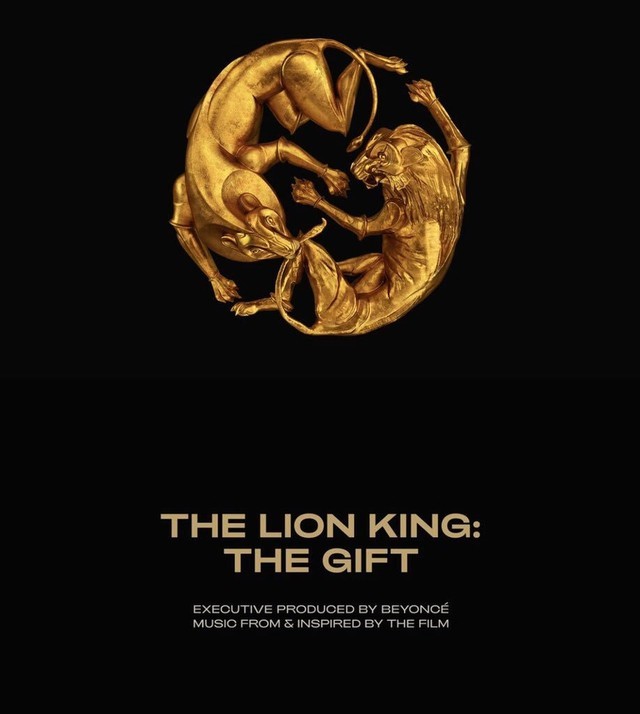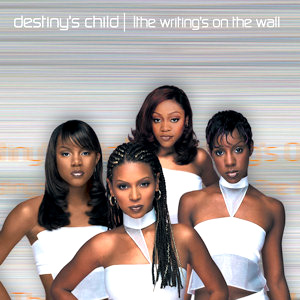Posted at 15:12h
in
Music,
Review
 Beyoncé assembled an international roster for The Lion King: The Gift, an album featuring music inspired by the remake of The Lion King, in which Bey plays Nala. The album is not to be confused with the movie’s soundtrack, which includes remakes of all the classics from the 1994 original. The Gift is more of a promotional vehicle that allows Disney to maximize its use of Beyoncé’s clout, especially since her role in the movie is relatively small. It is a shrewd move on Disney’s part.
Beyoncé assembled an international roster for The Lion King: The Gift, an album featuring music inspired by the remake of The Lion King, in which Bey plays Nala. The album is not to be confused with the movie’s soundtrack, which includes remakes of all the classics from the 1994 original. The Gift is more of a promotional vehicle that allows Disney to maximize its use of Beyoncé’s clout, especially since her role in the movie is relatively small. It is a shrewd move on Disney’s part.
The Gift begins with James Earl Jones’ booming voice, which has aptly been described as what the world’s richest coffee would sound like if it could speak. The prelude, titled “Balance,” features Jones as Mufasa and transitions into “Bigger” by Beyoncé, a surprisingly contemporary song that will remind anyone with a keen ear of Lemonade’s “Love Drought.” The song’s bridge even mentions the word “drought,” and I find it hard to believe that that was a coincidence.
“Bigger” is a solid track and a good indicator of what’s to come: an assortment of jams. If you’re looking for “Circle of Life”-esque songs, go listen to the soundtrack.
We get another James Earl Jones interlude, which is followed by “Find Your Way Back” by Bey. Though contemporary, this track sounds a lot closer to the old-school African sound that I would have expected from the entire project. The drums and the cadence of the verses will remind you of Drake’s “Too Good” (featuring Rihanna). “Find Your Way Back” is a strong contender for best track.
Tekno, Yemi Alade and Mr Eazi joined forces for the album’s first club banger, “Don’t Jealous Me.” The song, which many would describe as “Afrobeats” (a questionable term in my book), is your standard contemporary African (read: Nigerian) jam.
We get another interlude featuring JD McCrary and Shahadi Wright Joseph as young Simba and young Nala, respectively.
“Ja Ara E” by Burna Boy is another contemporary Naija jam, but this one’s a little mellower. I’m thinking more swanky bar and less club. The Yoruba title roughly translates to “stay woke,” which would be unbearably trite if it was in English.
Chiwetel Ejiofor and JD McCrary as Scar and young Simba, respectively, are featured in the next interlude, “Run Away,” which is followed by “Nile” by Bey and Kendrick Lamar. At just 1 minute 47 seconds, “Nile” could be classified as another interlude. We don’t get any real music till its last 30 seconds, with a beat that bears some similarities to B’Day‘s “Kitty Kat.” You will be left feeling furious that this track — or at least its last 30 songs — isn’t longer.
Timon (Billy Eichner), Pumbaa (Seth Rogen) and young Simba are featured on “New Lesson,” an interlude that closes with a mention of “Hakuna Matata.” What a wonderful phrase.
Bey, Jay-Z and Childish Gambino got together for “Mood 4 Eva” and I wasn’t quite ready. Beyoncé and her husband shit all over this track. The braggadocio is on a hunnid thousand trillion and the beat KNOCKS. “Mood 4 Eva” is a real club banger and an otherwise perfect track if not for Donald Glover’s weak vocals.
Beyoncé and Donald Glover — who is credited as his stage and government names on this singular project — are featured as grownup Nala and Simba, respectively, on “Reunited.”
“Water” is a collaboration between Salatiel, Pharrell Williams and Beyoncé, and the whole time, you’re just kind of wishing they left Bey to handle this one on her own. Her vocals are amazing and the other two don’t quite have the range. Also, Bey’s use of West African exclamation is simply beautiful.
Bey, SAINt JHN and WizKid — with an assist from Blue Ivy Carter — got together for “Brown Skin Girl,” an ode to black girls. The track, which name-checks Lupita Nyong’o and Kelly Rowland, is a fan favorite and trended on social media hours after The Gift dropped. Blue Ivy’s vocals, which open and close the song, are the best thing about “Brown Skin Girl.”
On the next interlude, we cringe through Nala telling Simba to come home. Beyoncé is one of the best to ever do this music shit, but acting is not her forte. Lordt.
“Keys to the Kingdom” is a groovy mid-tempo that may remind you of “Ja Ara E.” Though billed as a duet between Tiwa Savage and Mr Eazi, the former gets the lion share of track time. “Keys” is followed by “Follow Me,” an interlude featuring John Kani as Rafiki.
Beyoncé sings in a West African accent on “Already,” a collaboration with Shatta Wale and Major Lazer, and another one for the clubs. What can I say that I haven’t already? Beyoncé is a master at her craft.
We get another dose of the world’s richest coffee on “Remember,” which is followed by “Otherside,” a ballad performed by Bey. Producer Bankulli sings the outro — which is in Yoruba and Kiswahili — with Beyoncé.
“War” is another interlude featuring Nala, but this time, Bey doesn’t sound so bad. It features a clip from the lead-up to the big fight with Scar, which features Nala in the remake, thanks to an expansion of the role.
Tierra Whack, Beyoncé and Moonchild Sanelly got together for “My Power,” which features Nija. The track is one of those that might take a few listens to appreciate. It’s a very South African track, so if that’s your bag, you might like it.
Simba and Scar face off on the “Surrender” interlude, and then it hits me: Donald Glover isn’t that great of an actor either. At least not as a voice actor.
“Scar,” performed by 070 Shake and Jessie Reyez, starts as a piano-driven ballad and then the beat drops. It sounds like an amalgamation of two songs that would probably be better off separated. Also, 070 Shake sounds like Sade in some instances and the Weeknd in others.
The album ends with “Spirit,” and now that I’ve heard this entire project, I can say that Beyoncé played us by not releasing something else as the lead single.
The Lion King: The Gift is yet another manifestation of Afropop as a force to be reckoned with. Popular American artists have dabbled in the sound for a few years now, but no one has ever done it quite at this scale. More importantly, Beyoncé has shown just how seamlessly you can blend American and African contemporary musical styles without diminishing either. She has also given the biggest of co-signs to a rack of African artists. A paradigm shift is imminent.
Album rating: 8.5 out of 10 stars.




